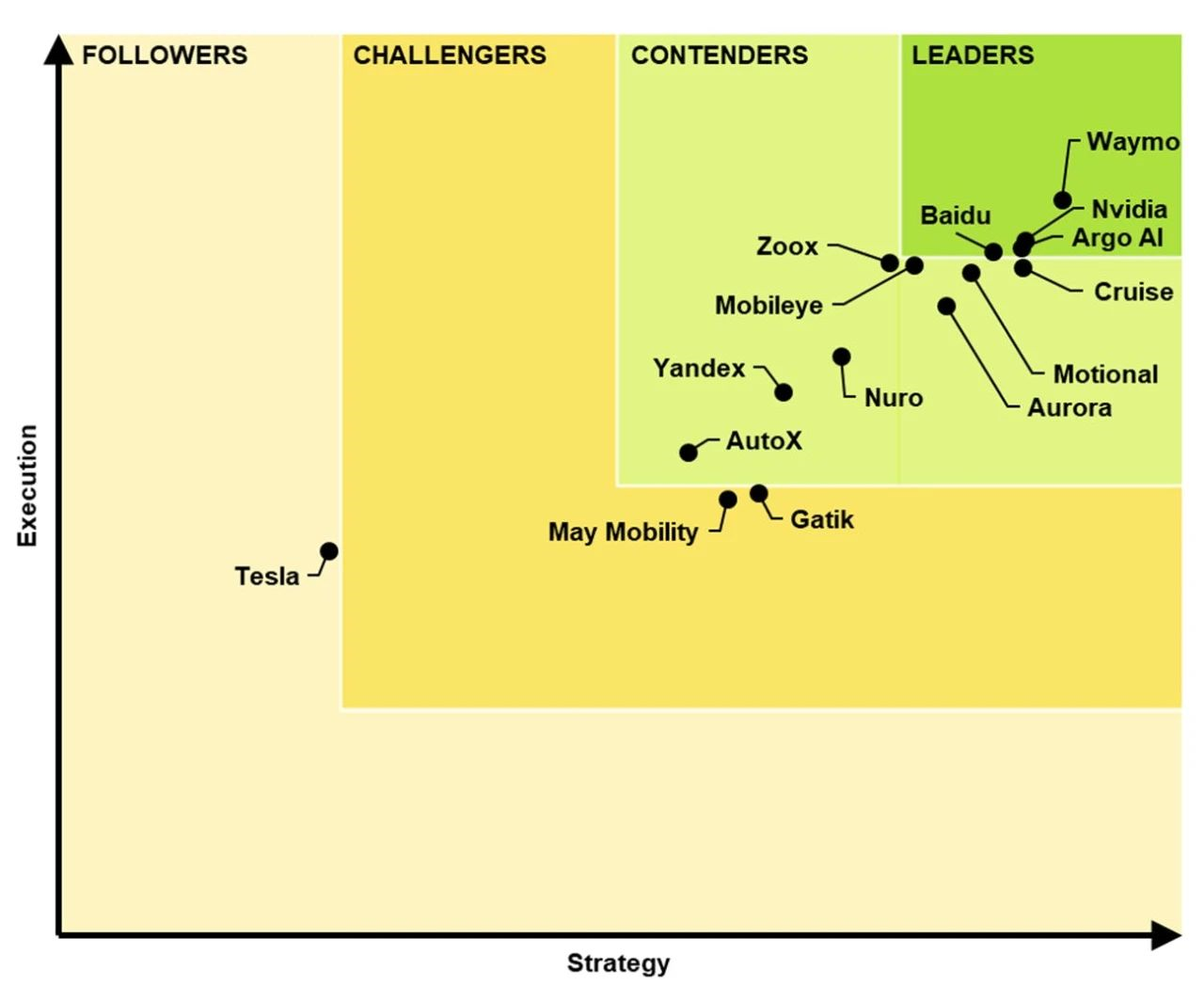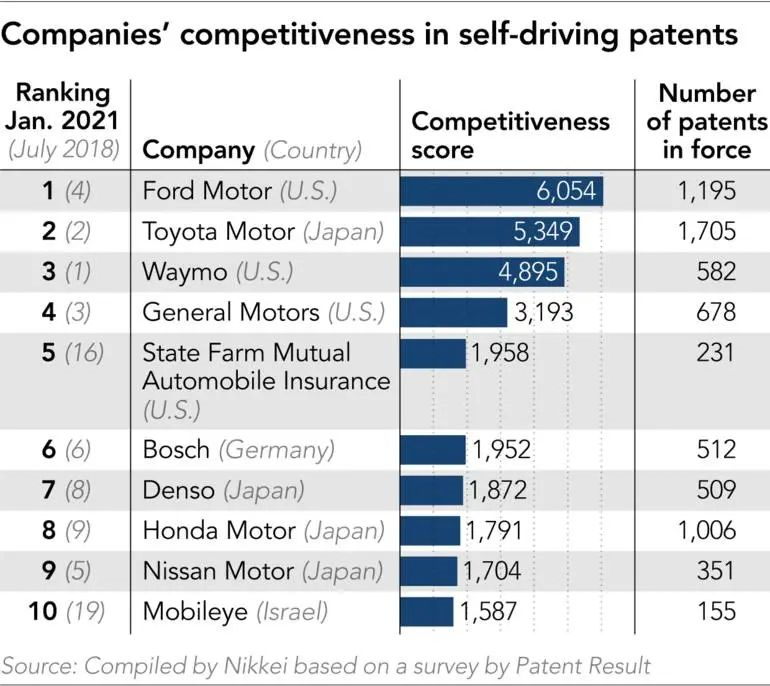Author: Passionate about autonomous driving
Introduction
The Guidehouse Insights rankings have always been one of the more recognized rankings in the field of autonomous driving. Based on ten dimensions, including corporate vision, market strategy, partnership, production strategy, technology, sales & marketing & distribution, commercialization degree, R&D progress, product portfolio, and financial strength, Guidehouse has conducted a comprehensive evaluation of 15 global autonomous driving companies. Meanwhile, based on their execution capability and strategy capability, Guidehouse has classified these players into four levels: “Leaders,” “Challengers,” “Contenders,” and “Followers.”

In the 2021 Guidehouse Insights rankings report, Waymo ranked first among the 15 autonomous driving companies evaluated, followed closely by Argo AI, a start-up supported by NVIDIA and Ford, and Chinese Internet giant Baidu, with Tesla placing last.
However, this ranking has its limitations because the sample size is limited, and there are many subjective factors in the evaluation. If we compare true technical strength, the number of patents should be one of the more objective indicators.
Recently, the 2021 Autonomous Driving Patent Ranking compiled by Nikkei has been released. This ranking is based on a survey conducted by Patent Result Co. at the end of January on patents registered in the United States.
Ford and Toyota have surpassed Waymo, the autonomous driving car company owned by Google’s parent company Alphabet, which ranked first in July 2018.
As autonomous driving technology approaches practical application, automakers are now threatening the once-leading all-in-one IT powerhouses in the market because they have rich professional knowledge in traditional vehicle manufacturing.
According to the report, 12 Japanese companies, including Sony, and major automakers such as Toyota, Honda, and Nissan, are among the top 50 on the list. However, the total distance traveled by Japanese players on public roads in the United States is still behind their American and Chinese competitors.
In the investigation commissioned by Nikkei, the patent results were analyzed for competitiveness by the number of times the patent is quoted in the report by international organizations, the number of times it is challenged by other companies, and the number of appeals related to the patent. The Nikkei index subsequently created a list that shows the higher the company’s score, the stronger its competitiveness.
 |
Ford | 6,054 points | 1,054 valid patents |
|---|---|---|---|
| Toyota | 5,349 points | 1,705 patents | |
| Waymo | 4,895 points | 582 patents |
Seven prominent automakers and auto parts manufacturers occupy the top ten list. Ford’s score has increased by 260% from the previous survey, while Toyota’s score has soared by 140%. Waymo also performed well, with a 70% increase in marks this time.
By significantly increasing their autonomous driving patents, Toyota and Ford have surpassed Waymo. The number of valid patents owned by these two companies is 2.5 times that of what they had in 2018. Waymo has also seen an increase in the number of patents owned, but the increase is not significant.
The reason for the development of traditional automakers is that they hold a large number of patents in conventional automotive technology. As autonomous driving technology becomes more practical, these patents are increasingly being cited and targeted in appeals.
In terms of powertrain technology, Toyota ranks first with 3,467 points, followed by Ford with 3,137 points. Waymo lags behind with 2,486 points.
Ford and Toyota have highly competitive technologies in adjusting motor output and establishing steering systems. In particular, Ford leads its competition in automatic parking technology, with a score of 1,115, which is three and five times higher than Toyota and Waymo, respectively.
Ford is at the forefront in this area by acquiring Quantum Signal AI, a company focused on mobile robots, modeling, and simulation in 2019. This automaker is expected to equip its vehicles with this technology in the near future, given that the product was successfully demonstrated in the United States in 2020.
Chinese and Korean companies have also established significant positions among the top 50 participants. In the previous survey, only one Korean company, Hyundai, was in the top 50. However, this time, five Korean and two Chinese companies have entered the list. Baidu ranks 23rd, and multinational electric vehicle manufacturer NIO rank 35th.
Some IT giants have withdrawn from the competition. At the end of January, Uber Technologies sold its self-driving division, Uber Advanced Technologies Group, to self-driving car start-up, Aurora Innovation.
Lyft announced in late April that it would sell its self-driving car department to Toyota. In recent years, some unexpected accidents that have garnered media interest have caused some IT companies to exit the market.
This article is a translation by ChatGPT of a Chinese report from 42HOW. If you have any questions about it, please email bd@42how.com.